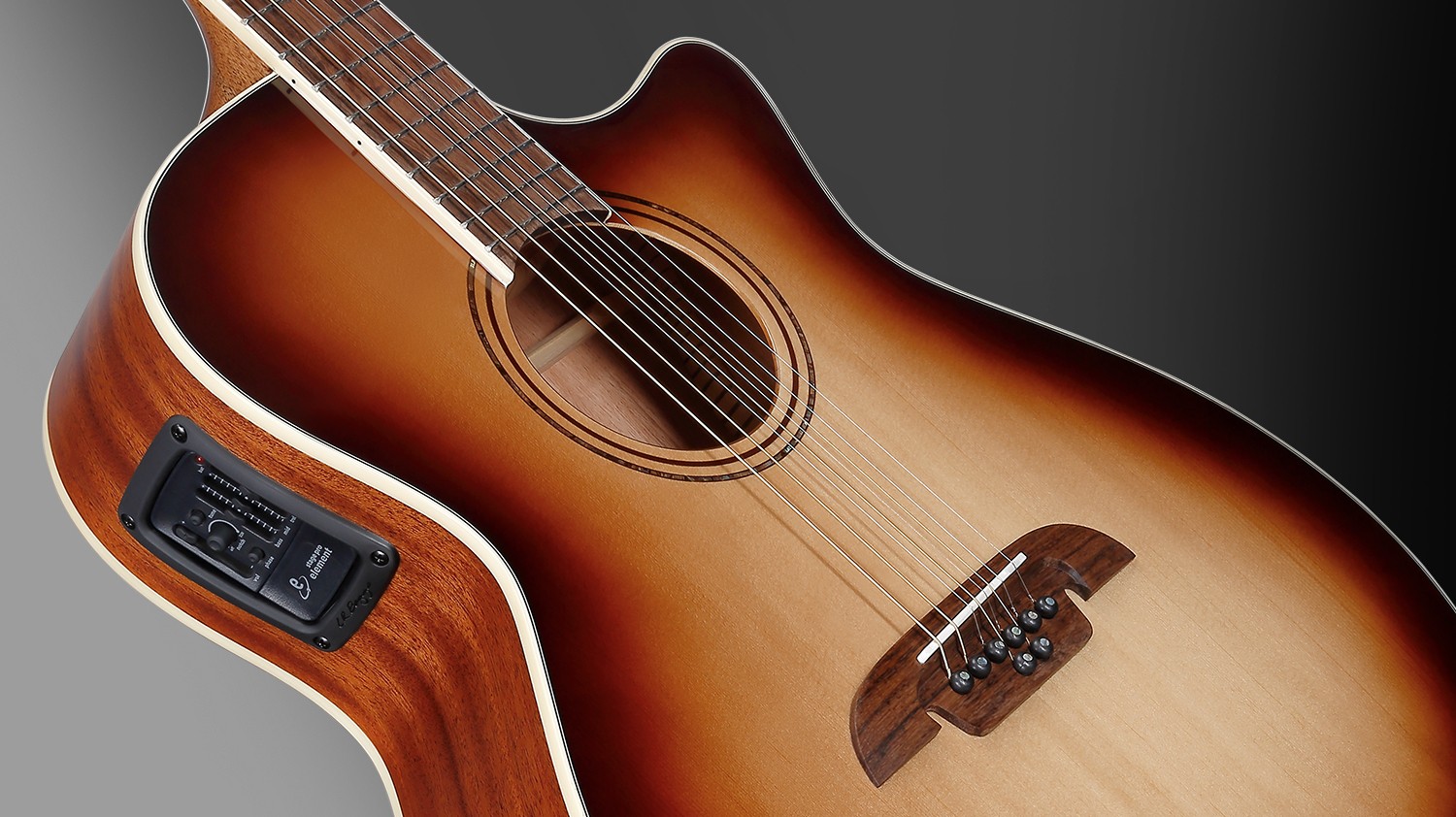
A little more chime or extra chorus to your sound can take you in new directions when playing guitar. It can make a song or guitar piece truly special. 12-string guitars have been around for decades and feature on many hit records where the guitar part is instantly recognisable due to its 12-sting sound and shimmer. They stand out and can really sing. So why did we make 8-string guitars?
12-strings add a lot more tension to the neck—the strings are more taught and sometimes not the easiest to fret and produce crisp notes, especially for new players. Plus, by doubling up the number of strings you must widen the nut width to accommodate them, which means the neck is wider, too.
Then there is tuning. Some players find the need to continually tune 12-strings a chore. No doubt it’s worth the time for many players, and the results can be wonderful, but significant time is needed to tune and keep the guitar sounding sweet.
8-string guitars are different. By just adding two extra octave strings on the D and G, you get a surprisingly large amount of chorus and shimmer when strumming, and when playing lead parts on the double strings, the octave effect is really interesting and prominent as the other strings are singles. Same with fingerpicking; those extra octaves are sonically appealing, and two of them is often enough.
With an 8-string you don’t have to widen the neck; there is much less tension than 12, and of course it’s easier and quicker to tune. But there is a lot of chorus effect from just doubling up on the D and G.
An 8-string guitar will help you approach the instrument from new angles or help you discover new approaches, and it will certainly deliver new dimensions to your 6-string guitars parts. It’s quite simply a lot of fun, sonically attractive and easy to play. Enjoy!